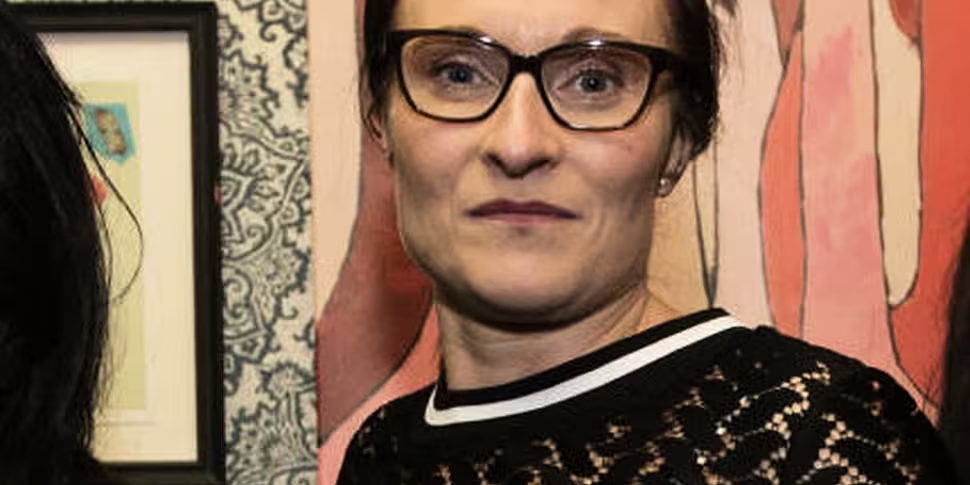A woman who fought off an attacker says she does not think she would go through the trial process again.
Ruth Maxwell was the victim of an attack in Dublin in May 2016 as she walked to work.
She was speaking after Fine Gael TD Josepha Madigan revealed she is a survivor of sexual assault.
Deputy Madigan told the Dáil of her experience on Tuesday during a discussion on what action is required to tackle sexual and domestic violence.
Recently, domestic violence support group Women's Aid revealed the number of people contacted its services increased by over 40% in 2020.
Deputy Madigan says under-reporting means this kind of assault is much more common than people think.
Ruth told Lunchtime Live listening to Deputy Madigan brought her attack back to the fore.
"I was on my way to work on May the 16th, it was about 6.40 in the morning.
"It was just happened so suddenly, so quickly - I didn't see him and he had a knife, duct tape, cable ties, a cloth to put over my face.
"I fought him off and I was left with obviously life-changing injuries to my hand, when I had to pull the knife from my throat.
"And that's left me with a permanent disability.
"But it transpired that he was a serial sexual predator that they'd been looking for him for many years in connection to other cases."
'My life had changed forever'
Ruth says Deputy Madigan's comments also made her think about the judicial system.
"It did kind of bring it back yesterday, listening to Josepha Madigan, and the acknowledgement though from the Government - and now Minister's experiences - is really highlighting the need to bring change within the judicial system.
"And it's not easy speaking out at all for any victim, and that couldn't have been easy for her."
Ruth says during a three week trial at the Circuit Criminal Court, she was offered support.
"There was support service area and I remember being brought up to it, and it wasn't for me.
"That whole area, the seclusion, it just wasn't for me - I had so many questions that I needed answered, and the only way I was going to get them answered was by sitting there listening to everything.
"There were parts that I found difficult; I think the worst part was watching the van going around after, driving home after he'd attacked me and knowing that my life had changed forever.
"And knowing the emotional state that I was in while I was watching that at the particular time of the attack.
"When you're watching something like that, you're looking at evil - pure evil.
"That whole experience... it's like going to funeral of a loved one but the loved one is you.
"And you're going every single day of the week, and you're just in shock".
Ruth says there needs to be more post-trial support services.
"When it all ends, to me that is the most important stage where there should be supports and services in place.
"When you finish a trial and you go back to your own life, and you're just trying to re-integrate back into society in a positive way.
"There should be supports there to help you with that - because down the line there's appeals, there's obviously pending trials - there's other things going on.
"I really felt so strongly there should have been a lot more supports and services put in place post-trial."
'Watertight support network'
Ruth says there has to be a re-thinking from the ground up.
"I think there needs to be a victims commissioner and probably a department set out in relation to - how do you put it - crime and social inclusion.
"But there definitely needs to be a complete, watertight support network and strategy for victims.
"The support networks for all the victims of sexual violence and stuff, they're being discussed all the time.
"They've been discussed for years and years and years - and the time that I was attacked, from 2016 until now, I don't see anything different.
"I don't see how someone like me could possibly encourage other women or victims - men, children, anything - to put them forward into a court setting, trial setting.
"I do all I can to help - being involved with the Law Reform Commission and stuff - I'm very, very passionate about what I can do.
"But it's not something that if, knowing what I've gone through, if I was in a position now to go forward and go through a trial: I genuinely don't think I could say I'd do it".
Ruth adds that the aftermath of her attack is with her everyday.
"From the minute you get up in the morning till the last thing at night.
"Even brushing your teeth, washing your face - all of the simple things that most people take for granted - I can't do properly.
"And it's slowly declining, the power in my little finger anyway, I'm starting to lose the feeling in that finger.
"There's always shooting pains going up through my hand and everything - so I'm very aware of all of that.
"There isn't a day, or a moment in a day, where I can convince myself that it's absolutely fine."
Anyone affected by issues raised in this article can contact Women's Aid on 1800-341-900 or the Dublin Rape Crisis Centre at 1800-77-8888









